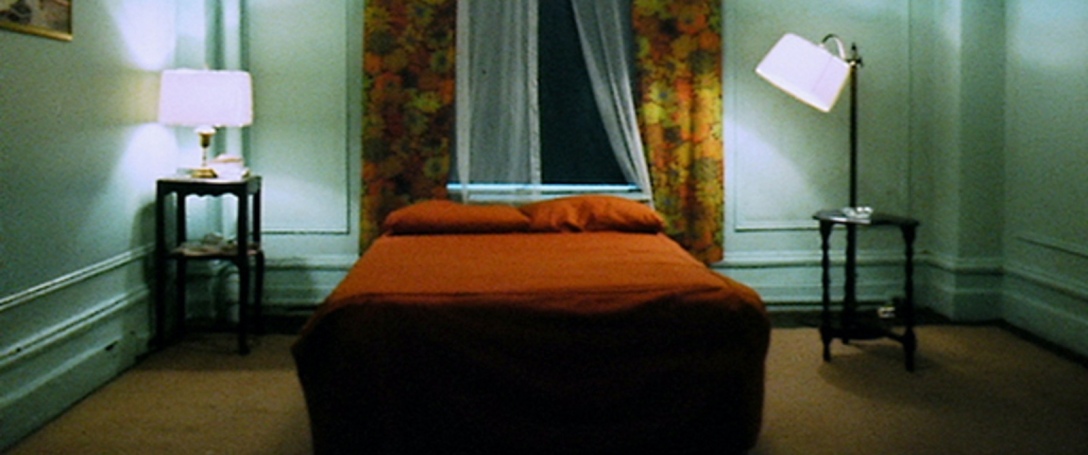Directed by Chantal Akerman
We don’t spend enough time taking in the world. By that I don’t mean we should stop at street corners to watch the clouds drift by or stoop to smell the flowers along the sidewalk, I just mean we don’t really give things the time to make an impression on us.
We don’t even spend enough time taking in the world when that’s what we say we will. We’ll go to an art exhibit, and we’ll stroll through the entire thing at a polite pace, perhaps granting a given piece all of 10 seconds before we lumber on. An artist’s career retrospective covered in 30 minutes flat. Tops.
Chantal Akerman’s experimental silent documentary Hotel Monterey flies in the face of that mentality. Composed of long (real long) takes of mostly empty hotel hallways, rooms, rooftops, and elevators, it asks for sustained attention paid to the minute details of a deteriorating hotel and its few guests. These shots, which for the most part don’t move, sit in complete silence thereby emphasizing observation. You’ll have plenty of time to pore over every shot, and you almost sink into a trance while doing so.
It forces an intense scrutiny, and therefrom a wealth of impressions pours out, often heightened beyond what the simple setup might suggest. When Akerman’s lens briefly encounters hotel guests, there’s a quaint comedic awkwardness in how people react to the camera’s unexpected presence, but Akerman can also turn the encounter on its head with long shots of guests sitting quietly. In the long silence, these people attain a ghostly quality.
Watching empty hallways will have you consider both the nature of a space and how a room changes without a human presence. The more “elaborate” shots of Hotel Monterey make clear the passing of time, evoking a transient feeling while also underlining the stoic presence of this building that we know is wearing away from some shots detailing its decay.
It’s stunning what Akerman can conjure out of the most barebones of circumstances and the slow meandering of a sparsely occupied space seems to have inspired Ming-liang Tsai’s Goodbye, Dragon Inn, a movie preoccupied with both the concrete materiality of a place, as well as the fleeting and hard-to-describe feelings that place can hold.
Hotel Monterey trades in those hard-to-describe feelings too. It makes you live in it. That feeling is part of the invigorating thrill of watching something like Akerman’s movie today.
These days, most movies don’t just take you by the hand, they grab you by the arm and manhandle you through plot beats, point vigorously at characters labeled GOOD and BAD so there’s no chance of you having to take an active part in enjoying it. Hotel Monterey is the opposite. It asks you to apply yourself, asks you to look within as well as without. To commit to the experience, to study it, to think and ponder. A rare movie that lets you take away as much as you put in.

[…] Une Nuit is dense with action, easily clearing the ghost-like and monostylistic Letters Home or Hotel Monterey, yet it feels more rote than these films wherein far less happens. There’s a rigor to the latter […]
LikeLike